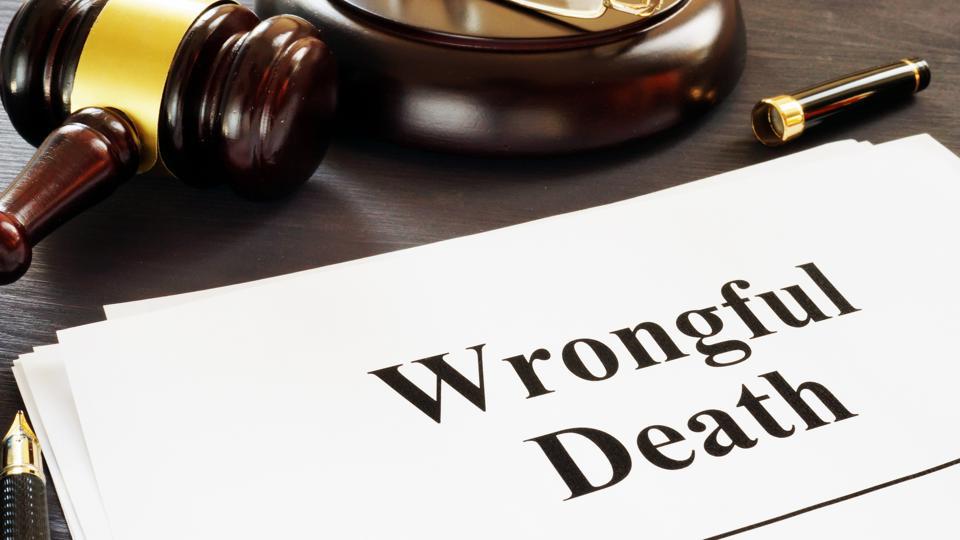
When life is tragically cut short due to someone else’s negligence or intentional act in Florida, the aftermath can lead to a complex legal journey. This article delves into the nuances of Florida’s wrongful death claims. Our focus will cover a range of aspects, from the foundational definition of wrongful death within Florida’s legal system to the eligibility and process for filing such claims. This guide aims to provide clarity and insight for those navigating these challenging circumstances.
Understanding Wrongful Death in Florida
What Constitutes a Wrongful Death?
In the state of Florida, a wrongful death is regarded as a fatality that occurs due to the misconduct or negligence of another party. This legal framework covers a spectrum of scenarios, ranging from accidental to intentional causes. Examples include fatalities stemming from vehicular accidents, medical errors or negligence, hazardous property conditions, or even direct intentional harm.
The Florida Statutes (specifically, Fla. Stat. § 768.19 (2023)) categorize these incidents under various labels such as wrongful acts, negligence, default, breach of contract, or warranty breaches. This broad categorization ensures that any death resulting from legal faults, whether indirect or direct, is encapsulated within the wrongful death legal doctrine.
The Legal Process for Wrongful Death Claims
Filing a Wrongful Death Lawsuit in Florida
In contrast to some other jurisdictions where the deceased’s relatives might directly file a lawsuit, Florida law mandates a specific approach. Here, the responsibility to initiate a wrongful death claim rests with the personal representative (often referred to as the executor) of the decedent’s estate. This statute (Fla. Stat. § 768.20 (2023)) is designed to centralize the legal process through a single representative who acts on behalf of the estate and all surviving beneficiaries.
The personal representative’s role involves more than just filing the lawsuit; they must also compile a comprehensive list of all potential beneficiaries of the lawsuit. These beneficiaries often include immediate family members like spouses, children, and sometimes extended family, depending on the decedent’s family structure. This approach ensures that all parties with a legitimate claim to damages from the wrongful death are considered in the legal proceedings.
Distinction Between Civil and Criminal Proceedings in Wrongful Death Cases
Civil Lawsuit vs. Criminal Prosecution
In the realm of wrongful death cases in Florida, it’s crucial to distinguish between civil lawsuits and criminal prosecutions, as they serve different purposes and follow distinct legal pathways. A wrongful death lawsuit is a civil action, primarily concerned with seeking financial compensation for the loss suffered by the deceased’s family and estate. In contrast, a criminal homicide case revolves around the state prosecuting the individual responsible for the death, with penalties including imprisonment, fines, or probation.
Consider an illustrative scenario: Suppose an individual in Florida is fatally injured in an altercation where the aggressor acted with lethal intent. In this instance, the personal representative of the victim’s estate can file a wrongful death lawsuit against the aggressor, seeking damages for the loss incurred by the victim’s family and estate. Simultaneously, criminal charges may be pursued by state prosecutors, focusing on penalizing the aggressor for their criminal actions.
Differentiating Standards and Outcomes
The outcomes of a civil wrongful death case and a criminal homicide trial differ significantly. In a wrongful death lawsuit, success for the plaintiff results in monetary compensation, quantifying the loss in financial terms. However, a criminal conviction can lead to incarceration and other legal penalties for the defendant. Furthermore, the standards of proof vary: criminal cases require proof “beyond a reasonable doubt,” whereas civil cases operate under the “preponderance of the evidence” standard, a lesser burden of proof requiring that the claim is more likely true than not.
Key Legal Considerations in Wrongful Death Cases
Understanding Damages and Liability
When navigating a wrongful death lawsuit in Florida, understanding the types of damages and the concept of liability is pivotal. The court, upon finding the defendant liable, orders them to compensate for losses incurred due to the decedent’s death. This compensation, termed as ‘damages,’ can be substantial and varies depending on the specifics of the case.
In wrongful death cases, two primary categories of damages are considered: those awarded to the decedent’s family and those awarded to the estate. Family members might receive compensation for loss of support, companionship, mental anguish, and sometimes for medical or funeral expenses they covered. The estate, on the other hand, may claim damages for lost earnings, lost prospect of savings, and any medical or funeral expenses paid directly by the estate.

Standard of Proof in Civil Cases
In wrongful death civil lawsuits, the standard of proof – the level of certainty required to establish liability – is notably lower than in criminal cases. The plaintiff must demonstrate the defendant’s liability based on a ‘preponderance of the evidence.’ This means the evidence must show that it’s more likely than not that the defendant’s actions led to the decedent’s death. This standard, while rigorous, is attainable with thorough and compelling evidence, making it a cornerstone of civil wrongful death litigation.
Time Limits for Filing Wrongful Death Lawsuits in Florida
Understanding the Statute of Limitations
In Florida, as in all states, wrongful death claims are subject to a statute of limitations, which sets a deadline for when the lawsuit must be filed in court. Generally, for most wrongful death lawsuits in Florida, this deadline is 2 years from the date of the decedent’s death (as per Fla. Stat. § 95.11(4)(d) (2023)). Failing to file within this timeframe typically means losing the right to bring the lawsuit altogether, making it crucial for potential plaintiffs to be aware of this time constraint.
Fundamental Elements for Filing a Wrongful Death Claim in Florida
In Florida, to successfully file a wrongful death lawsuit, specific legal criteria need to be met. Initially, the occurrence of a death must be established. Following this, it’s essential to demonstrate that this death resulted from another party’s actions, whether due to negligence, a wrongful act, or a breach of contract or warranty. This aspect is critical, as detailed on this page, where further insights into the legal intricacies of such cases are provided. Additionally, there must be a clear indication of financial loss suffered by the decedent’s family as a consequence of the death. The final element involves setting up an estate in compliance with Florida’s legal statutes, including appointing a personal representative for the deceased. Meeting these requirements is vital for the success of a wrongful death case in the state of Florida.
Exceptions to the Rule
However, Florida law provides a notable exception to this 2-year statute of limitations. In cases where the death resulted from murder or manslaughter, there is no time limit for filing the wrongful death suit, regardless of whether the perpetrator has been arrested, charged, or convicted. This exception (found in Fla. Stat. § 95.11(10) (2023)) acknowledges the severity and unique nature of these cases, allowing families more flexibility in seeking justice.
Types of Damages in Wrongful Death Lawsuits
Compensation for the Family and Estate
When a wrongful death lawsuit in Florida concludes with a finding of liability, the court orders the liable party to pay damages. These damages are categorized into two main types: those that compensate the decedent’s family and those that go to the estate.
- Family Compensation: The family of the deceased may receive compensation for a variety of losses, including but not limited to:
- Loss of support and services the decedent provided.
- Emotional pain and suffering due to the loss.
- Loss of companionship, guidance, and protection offered by the decedent.
- For parents, loss of parental companionship and guidance.
- Reimbursement for medical and funeral expenses paid by family members.
- Estate Compensation: The estate can claim damages for losses such as:
- Lost wages and benefits, including what the decedent could reasonably have been expected to earn if they had lived.
- The “prospective net accumulations” of the estate, refer to the potential savings and assets the decedent might have accumulated.
- Medical and funeral expenses were paid directly by the estate.
Understanding the types of damages available is essential for families considering a wrongful death lawsuit, as it provides a framework for what compensation might be sought in these tragic circumstances.
Conclusion
The loss of a loved one due to someone else’s actions is a profound and painful experience. Navigating the legal aspects of a wrongful death claim in Florida can be complex and emotionally taxing. Understanding the nuances of wrongful death claims, from eligibility to file a lawsuit to the types of damages that can be sought, is crucial for families seeking justice and closure. It’s important to remember that while financial compensation can never replace a loved one, it can provide support and acknowledgment of the loss suffered.
Given the complexities and legal intricacies involved, those considering a wrongful death lawsuit in Florida are strongly encouraged to seek professional legal advice. An experienced wrongful death attorney can offer guidance tailored to the specifics of your case, helping to navigate the legal system and advocate on your behalf.
Additional Resources
For those seeking more information or considering pursuing a wrongful death claim in Florida, the following resources can be helpful:
Florida Statutes: Access to the complete text of the Florida Statutes, including sections related to wrongful death (Fla. Stat. §§ 768.19, 768.20, 95.11), provides a legal framework for understanding these claims.
Legal Aid Organizations: Many organizations in Florida offer legal assistance and advice, particularly for those who may not have the means to hire a private attorney.
Law Libraries and Online Legal Portals: These resources can provide further reading and research materials to deepen your understanding of wrongful death claims in Florida.
State Bar Association: The Florida Bar Association offers resources and referrals for attorneys specializing in wrongful death cases.
Victim Support Groups: Engaging with support groups can provide emotional support and practical advice from others who have faced similar situations.
